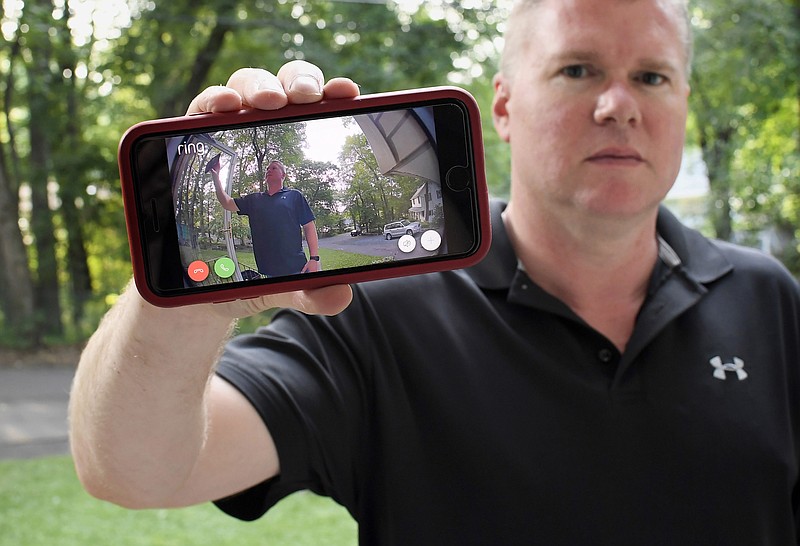The woodsy community of Wolcott, Connecticut, doesn’t see a lot of crime. But when the police chief heard about an opportunity to distribute doorbell cameras to some homes, he didn’t hesitate.
The police who keep watch over the town of 16,000 raffled off free cameras in a partnership with the camera manufacturer. So far, the devices have encountered more bears than criminals, but Chief Ed Stephens is still a fan. “Anything that helps keep the town safe, I’m going to do it,” he said.
But as more police agencies join with the company known as Ring, the partnerships are raising privacy concerns. Critics complained the systems turn neighborhoods into places of constant surveillance and create suspicion that falls heavier on minorities. Police said the cameras can serve as a digital neighborhood watch.
Critics also said Ring, a subsidiary of Amazon, appears to be marketing its cameras by stirring up fear of crime at a time when it’s decreasing. Amazon’s promotional videos show people lurking around homes, and the company recently posted a job opening for a managing news editor to “deliver breaking crime news alerts to our neighbors.”
“Amazon is profiting off of fear,” said Chris Gilliard, an English professor at Michigan’s Macomb Community College and a prominent critic of Ring and other technology that he says can reinforce race barriers. Part of the strategy seems to be selling the cameras “where the fear of crime is more real than the actual existence of crime.”
The cameras offer a wide view from wherever they are positioned. Homeowners get phone alerts with streaming video if the doorbell rings or the device’s heat sensors detect a person or a passing car. Ring’s basic doorbell sells for $99, with recurring charges starting at $3 a month for users who want footage stored. Ring said it stores the recordings for two months unless they are deleted by users.
Many law enforcement agencies nationwide said the idea to partner with Ring came after the company promoted its product at law enforcement conferences.
Some departments have chosen to simply use Ring’s Neighbors app, which encourages residents to share videos of suspicious activity. Other agencies agreed to provide subsidies, matched by Ring, to offer hundreds of discounted cameras in hopes of tapping into footage of residential streets, yards and sidewalks. And some police chiefs raffle off the devices.
Ring would not disclose the number of communities with such partnerships. Sharing video is always voluntary and privacy is protected, according to the company and police.
“There is nothing required of homeowners who participate in the subsidies, and their identity and data remain private,” spokeswoman Brigid Gorham said. She said customers can control who views their footage, and no personally identifiable information is shared with police without a user’s consent.
Realistically, though, if police want video for an investigation, they can seek a search warrant.

